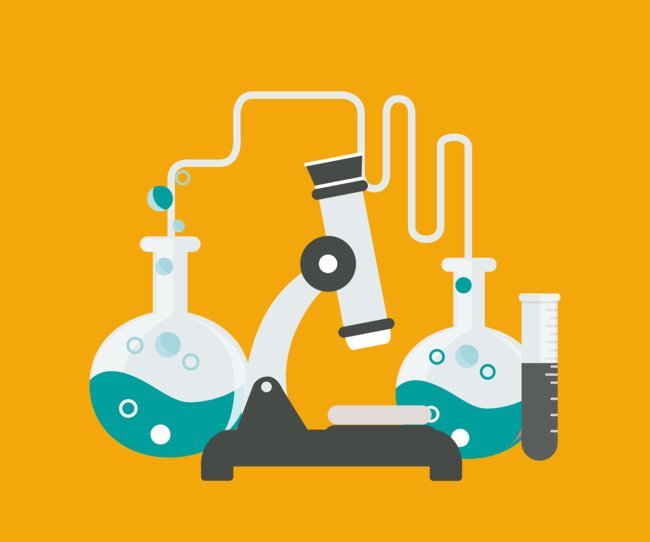The Brazilian Senate recently approved the Senate Bill PLS 200/2015, that aims to accelerate the approval and release of clinical research in Brazil.
However, the proposal that is now under consideration by the Brazilian House of Representatives has raised a lot of controversies involving the need to streamline the process of approval of clinical research, as a tool to increase innovation and competitiveness of the country in the sector, and the care that should be taken with those individuals who volunteer to participate in the researches.
Although the need to accelerate this process is real, many believe that the Bill is only serving the interests of the pharmaceutical industry, which would benefit greatly from the possibility of releasing drugs more quickly to the market. But what exactly has come under criticism?
Understanding the Situation
Until 1996, Brazil did not have mechanisms to regulate the ethical issues involving the conduction of clinical research in humans. Thus, the local Ethical Research Committees (in Portuguese: Comitês de Ética em Pesquisa), entities subordinated to the National Research Ethics Commission (in Portuguese: Comissão Nacional de Ética em Pesquisa) were created. Since then, the conduction of such research in the country was boosted, with the Research Ethics Committees being configured as instances capable of approving a large part of clinical protocols.
However, more advanced researches – which are at the frontier of knowledge and usually involve topics such as rheumatology, oncology and chronic diseases – continued to be approved exclusively by the National Research Ethics Commission, generating a centralized decision-making process and an increase in the time for approval of certain protocols.
As a consequence, Brazil is one of the most backward countries when talking about it. It takes 10-15 months to approve a clinical research project here, while in other countries this time varies from 3 to 6 months.
It is well known how harmful this delay is for Brazil, since it goes against the goals of a nation that aims to be competitive. The removal of potential investments in the sector and the impossibility of conducting top research (since other countries will already be doing so) are only some of its consequences.
In other words, the bureaucracy of the current system inhibits national health innovation, delays developments in the Brazilian science, and brings to light the need for regulation that can accelerate the process of approving clinical research.
The Bill
Given this scenario, the Bill PLS 200/2015, which seeks to encourage clinical research in Brazil, is under way in the country, accelerating the process and withdrawing Brazil from the position of one of the most backward countries in this regard.
According to the Bill, a new entity will be created under the Secretariat of Science, Technology and Strategic Inputs (in Portuguese: Secretaria de Ciência, Tecnologia e Insumos Estratégicos), of the Ministry of Health (in Portuguese: Ministério da Saúde), to review and authorize protocols. In this way, protocol approval would no longer be centralized in the hands of the National Research Ethics Commission.
One of the great challenges of the project, however, is to conciliate agility with the safety of volunteers who risk themselves in the research, contributing to medical and scientific development.
Thus, the Bill establishes, among other points: the freedom for the participant to quit the trial at any time; the requirement of a team with scientifically qualified people in order to avoid unnecessary harm and suffering; suspension of procedures when there is a possibility of damage, disability or death; and the obligation to publicize the results.
However, while PLS 200/2015 addresses issues related to volunteer conditions, it is still being criticized by those who oppose the Bill. In their opinion, the proposal’s original base text, initially written in 2015, still has controversial issues where the volunteer is not adequately protected. Because of this, it has undergone constant changes.
Controversy
Initially, PLS 200/2015 allowed research evaluations to be conducted by independent ethics committees. However, this made possible the exposure of volunteers to risky protocols. In this way, the original text has been modified and now approval of the protocols is up only to ethics committees linked to public or private research institutions.
In addition, the original text dictated that pharmaceutical companies would be required to provide the drug to research volunteers only in cases of patient death risk and absence of therapy in the country. In order to protect the health of the volunteer, this instance was also excluded. Now the pharmaceutical industries must provide the drug to the volunteer until the new drug is incorporated into the Brazilian National Health System (in Portuguese: Sistema Único de Saúde)
However, the original text still has controversies, which unlike those mentioned above, were not modified in the Bill.
One of the major objections of patient advocacy groups and experts in bioethics is related to the creation of a new coordinating entity of the Brazilian clinical researches system. The withdrawal of control, supervision and regulation of clinical research from the scope of the National Health Council (in Portuguese: Conselho Nacional de Saúde) to the Ministry of Health excludes the participation of members of the society in the process, a basic premise of the old system.
For Senator Humberto Costa, social control is fundamental in the implementation of a policy that leads to the possibility of significant risks for the population.
It is also in the Bill the possibility of using placebos in comparison with new drugs. The old legislation prohibited the use of these inert substances in order to ensure that the patient would have at least access to the standard treatment of his illness. It is emphasized that, according to the new text, the use of placebo will only be allowed in situations where there is no proven method of treatment for the disease, and if the damages caused by it are not bigger than the benefits of participating in the research . For critics, the text is still vague, which means it still gives the possibility of the placebo being used improperly.
Brazil in the Global Scenario
The existing bureaucracy in the process of approving clinical research in Brazil is reflected in different ways, when analyzing the country in the global scenario.
Despite being the seventh largest economy in the world and having the sixth largest pharmaceutical market, Brazil is only 15th in the world ranking of clinical research registries, distant from world leaders (the United States, Canada, Germany, France and the United Kingdom) and behind smaller countries such as Belgium, Denmark and Israel.
Another consequence is the poor placement of the country in the Global Innovation Index. Brazil is only 64th, behind countries like Luxembourg (12th), Estonia (25th), Costa Rica (39th), Chile (46th) and Uruguay (52th). And the situation only gets worst when comparing Brazil to the BRICS, because we are the only country in the group with a reduction in the number of searches for new drugs. All the other countries (Russia, India, China and South Africa) have increased their researches.
The comparison of certain characteristics of our current scenario with the international one, however, helps us to better understand our weak positioning. While in Brazil 80% of studies to produce drugs are sponsored by multinationals, in the US and Europe the research is funded by the government and the private industry.
In addition, Brazil is the only country that requires approval in three instances, two ethical (Research Ethics Committees and National Research Ethics Commission) and one technical (National Health Surveillance Agency). In other countries there is a need for a maximum of 2 approvals: one ethical and one technical.
Finally, much of the Phase 1 studies are concentrated in the world’s leading research centers (the US and Europe). In Brazil, only 4% of our studies are part of this phase, most of them belonging to Phase 3 (60%).

Rafael Lustosa | Consultancy
Industrial Engineering student at UFMG and passionate about innovation. Works in the Biominas Consulting departament, even though he also supports the Entrepreneurship and Relationship areas. Likes people with an open mind and willing to have a good conversation!
rlustosa@biominas.org.br
Ainda não recebemos comentários. Seja o primeiro a deixar sua opinião.






Leave a Reply